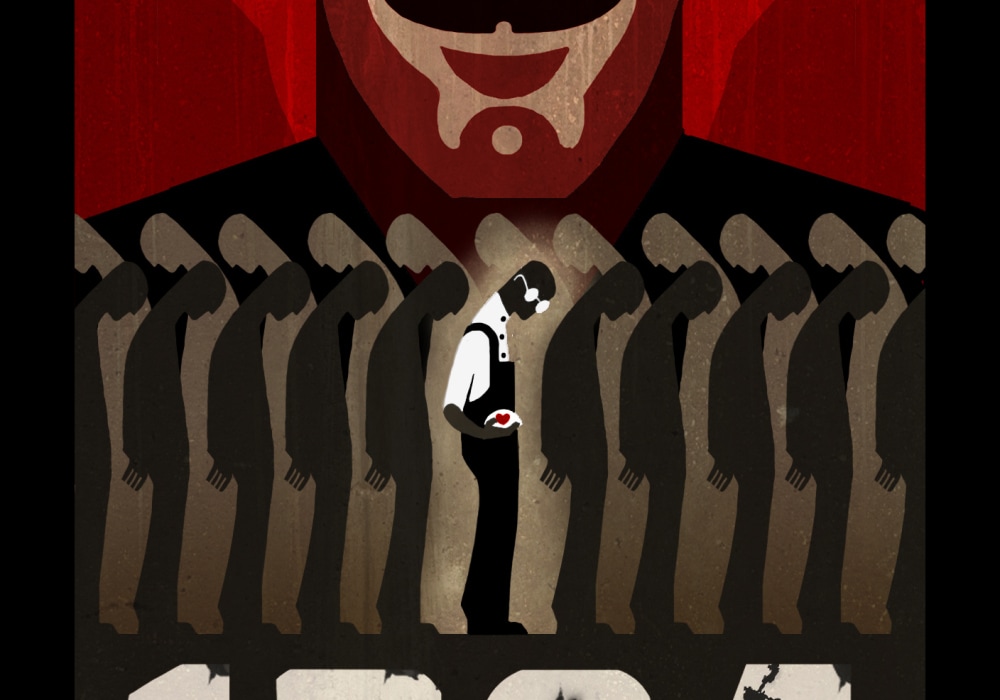| I often get to call upon my history as a theatre major, but rarely do I get much opportunity to call on my double: I was also an English major. (Quel surprise, right?!) I thought I'd take this opportunity to delve into the treasure trove that is 20th Century Literature and give you a top ten list of books to read right now. You can read these in any order you'd like, but I'd suggest alternating from one list to the other to avoid burnout. FIVE BOOKS TO UNDERSTAND OUR WORLD 1) "1984" by George Orwell. I know, we're all saying it, and there's a reason that it's at the top of Amazon's list right now. I recall reading it in 7th Grade and having one of the meanest most effective social experiments played on us by our teacher, Connie Cundiff. She taught us what fear and distrust meant in a week long lesson that still lives with me three decades later. 2) "A Clockwork Orange" by Anthony Burgess. We know the film better, but the ultraviolence in the novel is even grander when you consider that the character of Alex is only 15 years old. (Malcolm McDowell was 27 when it was filmed.) How does fear and the loss of power affect the mind of a working class man and his friends? With deadly consequences. 3) "The Four Gated City" by Doris Lessing is a book I need to go back and re-read. The title and its impact sticks with me more than the plot, but a quick google search comes back with, "The novel "takes on the medical profession", which it is suggested is "destroying [...] that part of humanity which is in fact most sensitive to evolution". It "criticizes the scientists who have created and perpetuate a climate in which "rationalism" has become a new God"; the novel further explores the possibilities of people having " 'extra-sensory perception', in varying degrees, but "have been brainwashed into suppressing it, and that is the name of our blindest contemporary prejudice." 4) "The Prime of Miss Jean Brodie" by Muriel Spark, where a cult of personality in a 1930's Scottish schoolroom parallels the rise of fascism. 5) "The Persecution and Assassination of Jean Paul Marat as peformed by the Inmates at the Asylum of Charenton Under the Direction of the Marquis de Sade," by Peter Weiss. Okay, so it's a play, not a novel, but this study of French extremism by a German ex-pat after World War II shines a spotlight onto the human condition and what it does with and to structures of power. FIVE BOOKS TO HELP GET THROUGH IT 1) "A Prayer for Owen Meany" by John Irving, tells the story of John Wheelwright and his best friend Owen Meany growing up together in a small New Hampshire town during the 1950s and 1960s. According to John's narration, Owen is a remarkable boy in many ways; he believes himself to be God's instrument and sets out to fulfill the fate he has prophesied for himself. As a white man, I'm a fan of John Irving (yes, his world view is pretty limited to upper middle class white people in prep school, wrestlers and bears), but this novel will be among the top ten 20th Century novels when the canon is set in stone. 2) "The Color Purple" by Alice Walker. The story of Celie's struggles against the oppressive yoke of Mr. _______'s sexism and internalized racism resonates more and more every day. Strong female characters, self-determination, resiliency, fierceness and wisdom make this novel an absolute must read. 3) "The Handmaid's Tale" by Margaret Atwood. Never let the bastards grind you down. Here's a novel of resistance in a world where women capable of having children are prized among all others. Wait, did I say prized? I meant as in a prize sow or cow: kept for breeding purposes. Once again, the spirit of sisterhood and the connection between women shows a path forward. 4) "Watership Down," by Richard Adams, tells the story of rabbits Hazel, Fiver and Bigwig as they try to establish a safe, egalitarian community, free from the destructive force of man and the fascism of other warrens. It's a fantasy, to be sure, but one which prizes collaboration, creativity and community and celebrates freedom from want and fear. (And no, it's not free from criticism, particularly around gender.) 5) "The Lord of the Rings," by J. R. R. Tolkein. Okay, so yes, like Watership Down, it's got some issues with gender and race. But it's one hell of a fantasy novel that tracks a rag-tag band of individuals from a range of different communities collaborating together to take on a powerful fascist leader. Maybe it's just escapism, but there's a lot here too. IF THOSE BOOKS DON'T HELP? Go rewatch season three of Buffy the Vampire Slayer. Watch her take on the Mayor. |
|
0 Comments
Leave a Reply. |
AuthorThoughts, observations and comments from Witti Repartee, hostess, fundraiser, bon vivant and...well, lots else. Archives
December 2018
Categories
All
|

 RSS Feed
RSS Feed